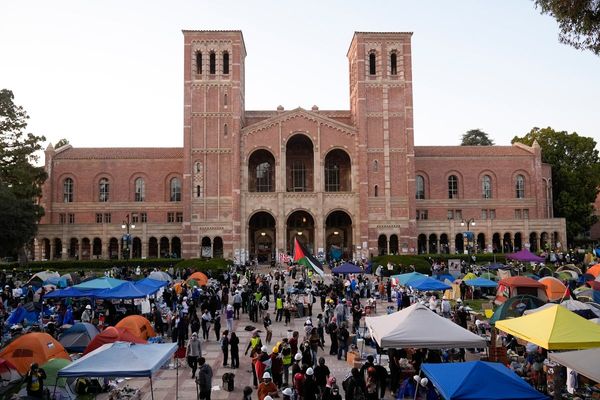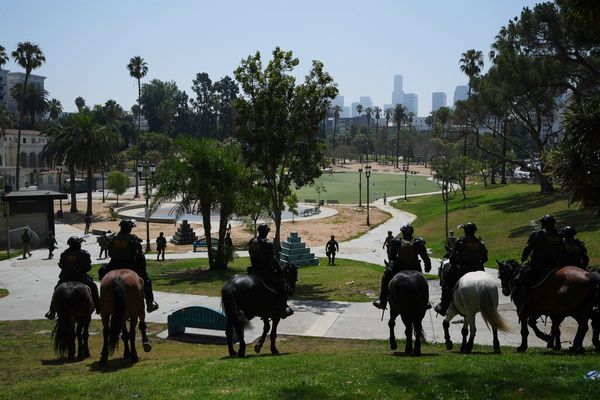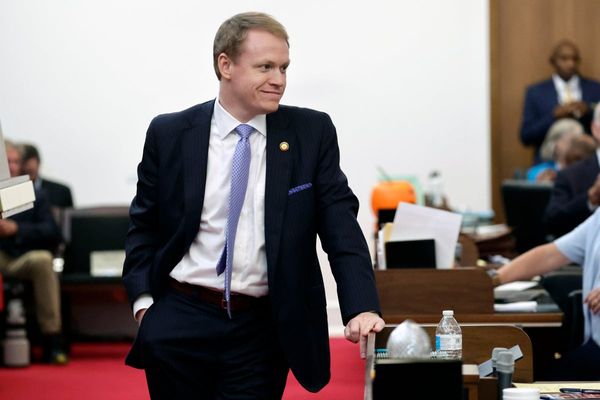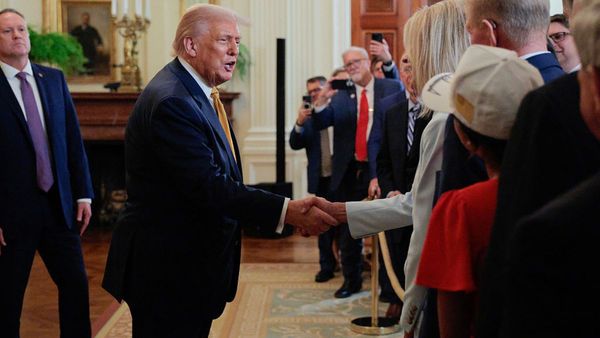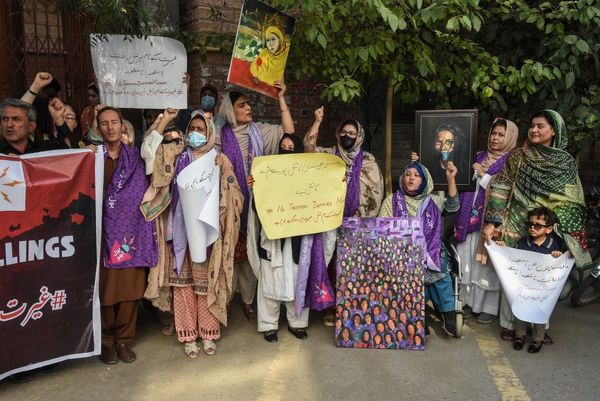
Earlier this week, a federal judge denied Elon Musk’s attempt to immediately block OpenAI’s conversion from a nonprofit into a for-profit enterprise.
However, that wasn't the end of the story. U.S. District Judge Yvonne Gonzalez Rogers also said the issue could proceed to a full, expedited trial in the fall. And the judge homed in on one complicated unresolved question in particular, indicating that the entire case will hinge on the answer.
That question is this: When Elon Musk shelled out around $45 million to establish OpenAI as a nonprofit organization nearly a decade ago, did he strike a binding legal agreement with cofounders Sam Altman and Greg Brockman, in the form of what is legally called a charitable trust?
If the answer is yes, the judge strongly indicated, she would be inclined to block OpenAI’s effort to allow its current for-profit company—which builds OpenAI's AI models and sells them—to escape the control of the nonprofit board, which currently still controls it. If the answer is no, Musk would not have legal standing to challenge the agreement.
If the donations created a trust, “the balance of equities would certainly tip toward plaintiffs," Rogers said.
But legal experts say that whether there was in fact a trust created remains up for debate. “This case is not so dissimilar to the basic fact that a parent cannot control whether their grown child chooses a career in social justice or investment banking,” Geeta Kohli Tewari, a business law professor at Delaware Law School, told Fortune. “Without a binding legal contract, a donor cannot control a nonprofit's choice to convert to a for-profit entity.”
The question of whether a binding contract existed can now be decided in a trial that will begin in the fall, Rogers said.
Four initial lines of argument, down to one
Musk filed the lawsuit last August, later adding Shivon Zilis—a former OpenAI board member who has helped to run a number of Musk's businesses, and who is also the mother of four of Musk’s children—as a co-plaintiff. (He had previously filed a similar suit in February 2024, before withdrawing it without explanation in June.) The revived suit contained four claims, three of which Rogers dismissed completely in this week’s ruling.
One of the allegations was that OpenAI and its partner Microsoft had violated antitrust law by banning OpenAI’s investors from putting money into rival operations; Rogers said there was no evidence of this. A second antitrust-related claim was about Microsoft board member Reid Hoffman and Microsoft employee Deannah Templeton holding seats on OpenAI’s board—a potential problem for the company if either Hoffman or Templeton were still OpenAI board members at the time Musk filed his suit, but they weren’t. Again, Rogers definitively scotched the allegation.
Musk and Zilis also accused OpenAI of “self-dealing” by attempting a transaction in which OpenAI’s own directors had a material financial interest. But, with neither Musk nor Zilis currently being involved in OpenAI, Rogers ruled that neither had legal standing to make that complaint. So out went that claim as well.
The fourth injunction request—and the one that cuts to the heart of Musk’s bitter feud with OpenAI CEO Altman—was different.
OpenAI’s core nature
This claim was about OpenAI changing its mind about its core nature. According to Musk, who provided emails between himself, Altman, and Brockman as evidence, the cash he provided to OpenAI in its early days was contingent on the operation remaining a nonprofit.
OpenAI was originally established in late 2015 as a research lab that had the goal of creating so-called artificial general intelligence or AGI (that is, AI that is as smart or smarter than humans) for the benefit of all of humanity. At the time, a big motivation was to avoid Google’s Deepmind achieving AGI first; the idea was that OpenAI would open-source its technology, so it couldn’t be controlled by any one company.
But Musk’s relationship with his cofounders soured in 2017, when the Tesla owner fought with Altman and Brockman over control of the startup and how it should raise the capital it needed to train ever larger AI models. Musk soon departed, after which Altman became OpenAI's CEO and Microsoft came on board as the company’s main sponsor, providing the funds it needed to support its rapidly growing computing requirements.
But Microsoft and other backers were not willing to simply provide billions of dollars as charitable donations—they wanted to make an investment on which they would stand to make a financial return. In order to facilitate that, OpenAI created a for-profit entity which could accept outside investment in exchange for a share of future profits (although unlike in a traditional equity arrangement, OpenAI capped the total upside these investors could earn.) Critically, these investors had no voting rights over OpenAI's management decisions. OpenAI's nonprofit charitable board retained ultimate control over the new for-profit entity.
Fast-forward to today, and OpenAI is currently in the process of finally trying to become a normal for-profit entity, in which investors have board seats and voting control, and in which OpenAI's nonprofit board no longer has exclusive control over what OpenAI does.
Altman and OpenAI's leadership sees the conversion as essential to continuing to attract big investors, especially after OpenAI's nonprofit board briefly ousted Altman in November 2023. That episode woke many investors up to the idea that the interests of OpenAI's nonprofit board—to ensure AGI is built in a way that benefits all humanity—could conflict with their own interest in ensuring OpenAI earns them an outsize financial return. The drama over Altman's firing and subsequent reinstatement shook investors, who have insisted to Altman that they don't want to be in a position again where their investment could be jeopardized by actions of the nonprofit board.
The emails Musk brought to court seemingly demonstrated his displeasure with the prospect of OpenAI abandoning its original structure. “Guys, I've had enough. This is the final straw,” read one from September 2017, addressed to Altman. “Either go do something on your own or continue with OpenAI as a nonprofit. I will no longer fund OpenAI until you have made a firm commitment to stay or I'm just being a fool who is essentially providing free funding for you to create a startup. Discussions are over.”
Altman responded at the time that he remained “enthusiastic about the nonprofit structure.” And in December last year, OpenAI alleged that Musk himself had “not only wanted, but actually created, a for-profit” structure for the company.
No formal agreement
There may be a lot of emails and allegations floating around, but nobody ever drew up an actual contract between Musk and his OpenAI partners, nor any gifting document with terms and conditions.
This is why Rogers refused to grant Musk an injunction against OpenAI’s for-profit conversion. Injunctions are only granted when there is a very good chance that the plaintiff would succeed in a full trial. In this case, the judge said, the “question of likelihood of success” was “a toss-up.”
But that does not mean Musk stands no chance of winning at trial.
“The billion-dollar question here, based on the extensive email exchanges between Musk, Altman, and Brockman regarding OpenAI's nonprofit structure, is whether the language used by Brockman and Altman resulted in a binding contract with Musk, their donor, regarding OpenAI's structure and purpose,” said Kohli Tewari. “Does Altman's written response to Musk's statement that he will no longer fund OpenAI if it moves towards a ‘profit motive’ create a valid claim or is it an illusory promise?”
In her ruling, Rogers pointed out that OpenAI’s own certificates of incorporation talk about creating the company “exclusively for charitable” purposes, with the technology being intended to “benefit the public.”
If converting to a for-profit structure “risks any of these endeavors,” it would benefit the public to block that move, she wrote.
“Given the public interest at stake and potential for harm if a conversion contrary to law occurred, the Court is prepared to expedite trial to the fall of 2025,” Rogers said.
“Ambiguity on this [charitable trust] issue requires an expedited trial,” said Kohli Tewari.
"A big win"
Given that ambiguity, there’s no way of telling whether Musk will prevail in the trial.
However, Michael Dorff, who heads up the Lowell Milken Institute for Business, Law, and Policy at UCLA, told the independent journalist Garrison Lovely that this week’s ruling was “a big win” for the tycoon because a pending trial is “a pretty big impediment” to OpenAI pushing forward with its conversion. That’s partly because, if OpenAI’s board members push on with a conversion that is then ruled illegal, they could be held personally liable.
Dorff also pointed out that the California and Delaware attorneys general may yet challenge the conversion. “Changing of a nonprofit's purpose is only supposed to be possible when the original purpose is defunct,” he said. “That's not the case here.”
This case is far from the only tactic Musk has employed in his attempt to stop the conversion. He also made a $97.4 billion offer to buy OpenAI’s assets last month, later saying that he would drop the bid if OpenAI dropped its conversion plans. OpenAI formally rejected the bid the following day. But the existence of Musk's offer may mean that unless OpenAI's for-profit is given either cash or an equity stake in the new for-profit entity being created that is equal to or greater than $97.4 billion, then the state attorney generals may use that as an argument for why the planned restructuring is not in the public interest.
OpenAI had not responded to a request for comment on the prospect of a trial at the time of publication.

